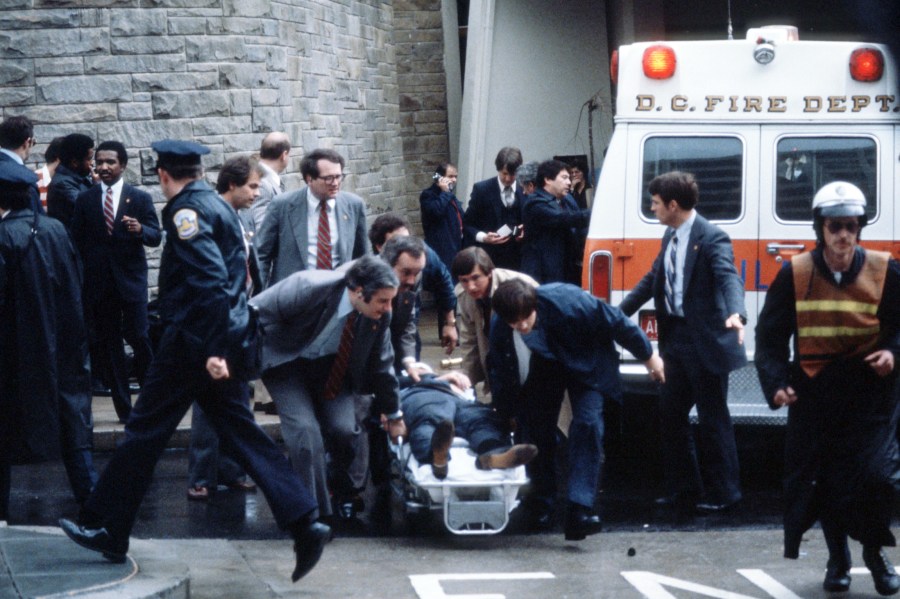Thursday marks 30 years since former President Bill Clinton signed into law one of the most important gun safety laws in America: The Brady Handgun Violence Prevention Act, which established the national background check system governing the purchase of firearms that is still in place today. Sitting next to Clinton as he spoke about the signing was the man the bill was named for, James Brady, White House press secretary under former President Ronald Reagan.
It was through the efforts of Brady and his wife, Sarah, that the bill became law over the objections of the gun lobby. But in the three decades since, conservatives and the gun lobby have made meaningful new gun laws nearly impossible to enact. Indeed, the Brady Act itself would stand little chance of passing in today’s Congress.

In March 1981, less than three months into Brady’s tenure as press secretary, he was shot and partially paralyzed during an assassination attempt on Reagan by the mentally disturbed John Hinckley, Jr. After the shooting, Sarah Brady joined the board of Handgun Control Incorporated, a group formed to press for stricter gun laws. (Its nonprofit wing has since been renamed the Brady Center to Prevent Gun Violence.) At the time, under the 1968 Gun Control Act, the only real requirement for purchasing a gun was filling out an application and offering proof that you lived in the state where you were making the purchase.
According to Sarah Brady’s memoir, “A Good Fight,” the need for new legislation was obvious:
“It’s impossible, of course, to say for certain that a background check would have saved Jim Brady from the nightmare of March 30, 1981. But I do know this: John Hinckley bought the gun he used in Washington in a Dallas pawnshop for twenty-nine dollars, and he lied by giving an address that was no longer his and showing an old Texas driver’s license as “proof” that he lied there. A background check would have caught that lie. And because lying on a federal form is a felony, John Hinckley would not have been able to buy a gun.”
The Brady Act required firearms dealers to run potential buyers through a federal database to ensure that they were legally allowed to own a gun. (While the FBI was setting up the National Instant Criminal Background Check System, NICS, to facilitate those checks, a five-day waiting period between purchasing and owning a gun was required in the interim.) Passage wasn’t easy: The National Rifle Association blocked several attempts to pass the bill. In 1992, after the bill passed the House and Senate with backing from police officers and Reagan, President George H.W. Bush refused to sign it. Clinton, his presidential opponent, pledged to sign the Brady Act. The following year, the final version was introduced in the House by a New York congressman named Chuck Schumer, now the Senate Majority Leader.
“This is the beginning of something truly wonderful in this country if we have learned to separate out all this stuff we’ve been hearing all these years, trying to make the American people afraid that somehow their quality of life is gonna be undermined by doing stuff that people of common sense and goodwill would clearly want to do,” Clinton said in his remarks at the bill signing.
At the time, there was some reason to believe this message of hope. But there were more failures than victories ahead, as the number of those killed in mass shootings has only continued to grow. Since the establishment of NICS, the FBI says that more than 2 million purchases have been stopped due to failed background checks. But the system is imperfect, to say the least, as it has struggled to keep up with requests during recent surges of gun sales. Numerous loopholes have also hampered the system’s effectiveness, allowing guns to fall into the hands of people who clearly should not own them.












